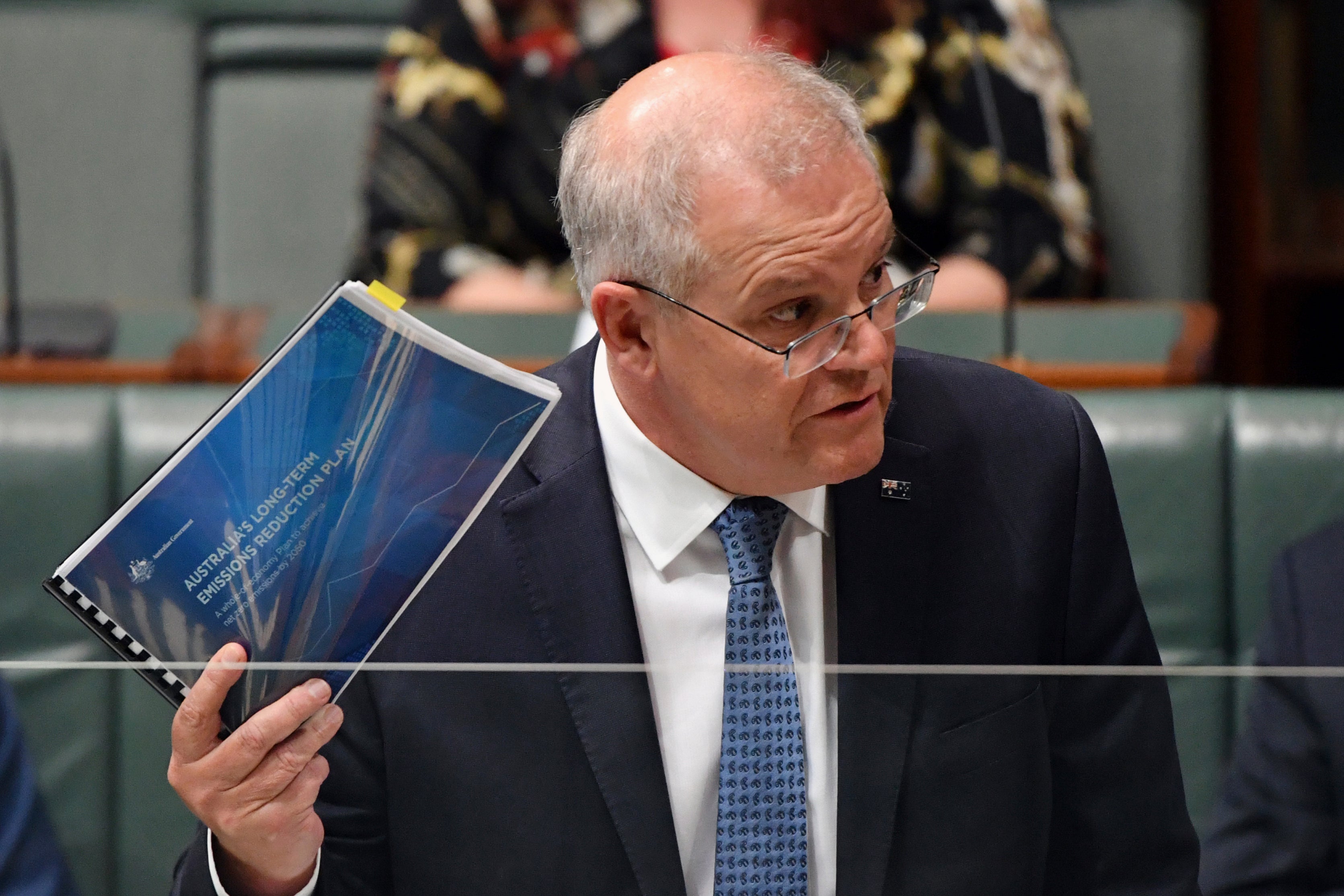Australia rules out committing to methane reduction target
Australia has ruled out promising to cut methane emissions by 30% by the end of the decade in a stance that will add to criticism the country is a laggard in addressing climate change

Your support helps us to tell the story
From reproductive rights to climate change to Big Tech, The Independent is on the ground when the story is developing. Whether it's investigating the financials of Elon Musk's pro-Trump PAC or producing our latest documentary, 'The A Word', which shines a light on the American women fighting for reproductive rights, we know how important it is to parse out the facts from the messaging.
At such a critical moment in US history, we need reporters on the ground. Your donation allows us to keep sending journalists to speak to both sides of the story.
The Independent is trusted by Americans across the entire political spectrum. And unlike many other quality news outlets, we choose not to lock Americans out of our reporting and analysis with paywalls. We believe quality journalism should be available to everyone, paid for by those who can afford it.
Your support makes all the difference.Australia on Thursday ruled out promising to cut methane emissions by 30% by the end of the decade in a stance that will add to criticism that the country is a laggard in addressing climate change.
Minister for Industry, Energy and Emissions Reduction Angus Taylor announced his government’s decision before he was to fly with Prime Minister Scott Morrison to a U.N. climate summit in Glasgow, Scotland.
The United States and the European Union pledged in September to the 30% methane reduction target.
Taylor said the only way Australia could achieve that target would be to reduce numbers of cattle and sheep.
“At present, almost half of Australia’s annual methane emissions come from the agriculture sector, where no affordable, practical and large-scale way exists to reduce it other than by culling herd sizes,” Taylor wrote in The Australian newspaper.
“What activists in Australia and elsewhere want is an end to the beef industry,” he added.
Australia is one of the world’s largest exporters of coal and liquified natural gas. The gas and mining sector account for almost one third of Australia’s methane emissions.
Deputy Prime Minister Barnaby Joyce said his Nationals party, the conservative government’s junior coalition partner, had insisted Morrison not commit to reducing methane at the Glasgow summit, known as COP26.
Inaction on methane was one of the conditions the rural-based Nationals had placed on support for Morrison’s Liberal Party’s target of net zero emissions by 2050.
“The only way you can get your 30% by 2030 reduction in methane on 2020 levels would be to go and grab a rifle, go out and start shooting your cattle because it’s just not possible,” Joyce said.
Morrison’s net zero deal with the Nationals means he cannot budge from Australia’s 6-year-old target of reducing emissions by 26% to 28% below 2005 levels by 2030.
Scientists agree Australia’s 2030 targets are among the weakest in the developed world. The United States has committed to reductions of between 50% and 52% below 2005 levels. Britain has pledged to cut emissions by 68% below 1990 levels.
Critics argue that Morrison’s plan to achieve net zero without imposing costs on households or businesses will not achieve the target and contains no measures to wean the Australian economy off fossil fuels.
Morrison and Joyce appeared to contradict each other on Thursday over the extent to which the agricultural sector will bear the burden of transitioning to net zero.
When Joyce was asked if he was certain that agriculture had been excluded from the net zero plan, he told reporters: “Absolutely, 100%.”
Morrison backed Taylor who earlier this week said the government’s policy was to reduce emissions across the entire Australian economy.
“I have no misunderstanding. It’s a whole-of-economy emissions reduction plan,” Morrison said. “That’s the policy agreed by Cabinet.”
Joyce said the net zero deal had also included a government commitment to create a “fund to support people in regional Australia.”
But neither Joyce nor Morrison would say how much the fund would cost.
Morrison said policies to “invest in rural and regional Australia” would be announced before the next election, which is due by May.